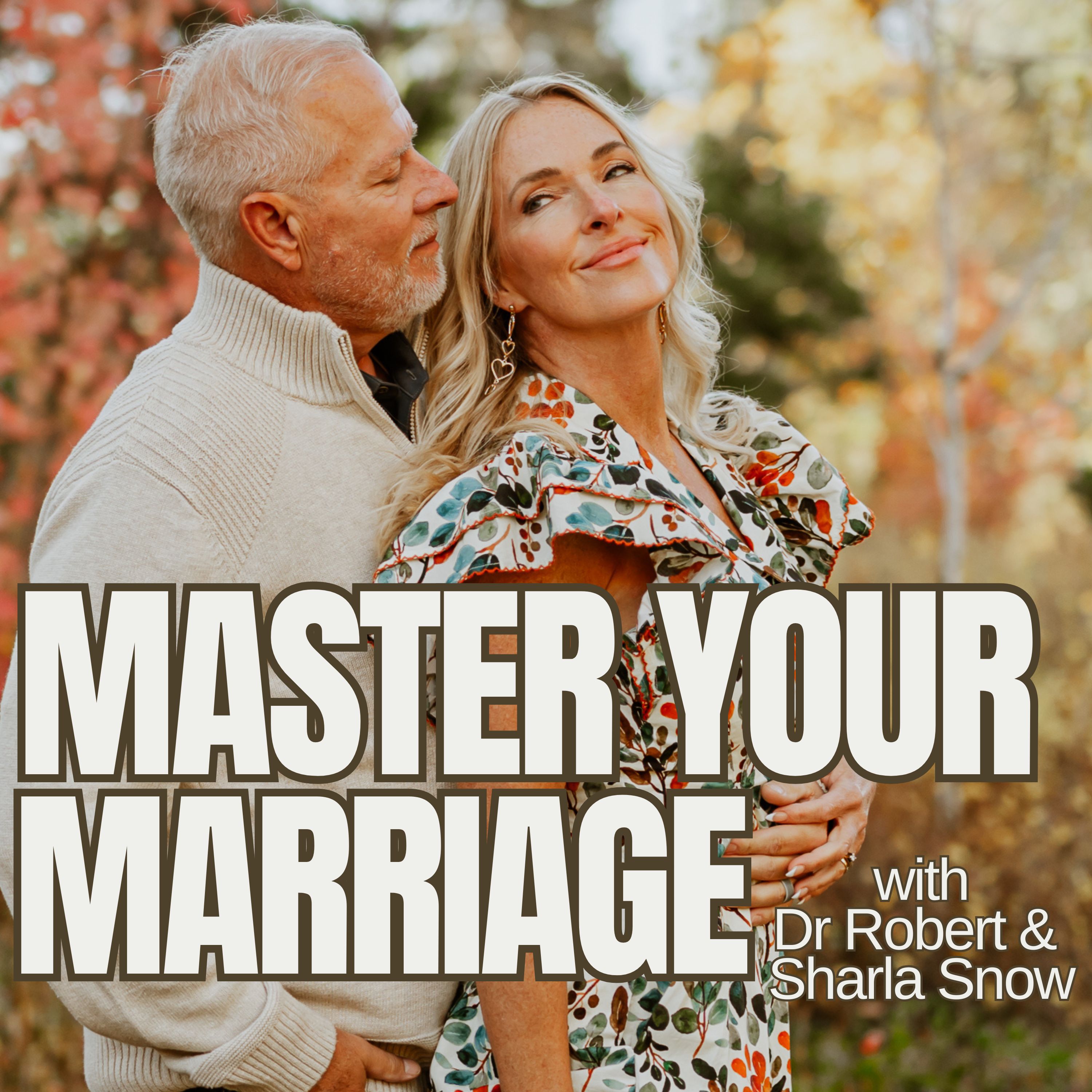Feeling Alone in Your Marriage? The Cry for Connection
Do you ever feel alone, even in your marriage? In this powerful episode of Master Your Marriage, we explore why loneliness hits so hard and how your brain is wired for connection. Sharla and Robert dive into the science of the relational brain, challenging the “go it alone” mindset of individualism. From Ed Tronick’s “still face” experiment to James Coan’s Social Baseline Theory, we uncover how co-regulation—syncing with your partner’s nervous system—can transform your relationship. Through compelling stories, like a couple rediscovering connection amidst conflict, and the stark realities of isolation (from orphanages to solitary confinement), we reveal why connection isn’t just a want—it’s a survival need. Plus, we tackle the paradox: love can calm us, but it can also trigger us like nothing else. Tune in to learn how prioritizing your marriage can heal loneliness and build a healthier, happier life together.
Key Takeaways
- Your Brain Craves Connection: Science shows our nervous systems are designed to co-regulate, sharing emotions and stress with others to stay balanced and healthy.
- Loneliness Hurts—Literally: From infants in orphanages to adults in solitary confinement, disconnection can lead to physical and mental health crises.
- Co-Regulation in Action: Simple acts, like staying calm when your partner is stressed, can help them “borrow” your calm nervous system.
- The Paradox of Love: Marriage can be a lighthouse of safety but also a mirror, triggering old wounds—making a secure relationship essential for survival.
- Individualism’s Downside: Prioritizing “me” over “we” can erode connection, but relationalism rebuilds trust and intimacy in marriage.
Dive Deeper
Explore these resources to deepen your understanding of how we’re wired for connection:
- Ed Tronick’s “Still Face” Experiment: Watch this YouTube video to see how a mother’s blank face impacts her child, showing the power of emotional synchronicity. Search “Ed Tronick Still Face Experiment.”
- Social Baseline Theory by Lane Beckes and James Coan: Learn more about how our brains rely on close relationships to conserve energy and manage stress. Check out Coan’s TEDx talk or their research at the University of Virginia’s website (search “James Coan Social Baseline Theory”).
- Dr. Dan Siegel’s Work: His book The Developing Mind explains how relationships shape our brains. A great starting point for understanding interpersonal neurobiology.
- Rene Spitz’s Orphanage Studies: Read about Spitz’s 1950s research on how emotional neglect led to infant mortality, highlighting connection as a survival need. Available in psychology journals or summaries online (search “Rene Spitz orphanage studies”).
- Book Recommendation: Attached by Amir Levine and Rachel Heller. This book dives into attachment theory, offering practical insights for building secure connections in your marriage.
- Further Study: Visit the Greater Good Science Center (greatergood.berkeley.edu) for articles on the science of relationships and connection, including practical tips for couples.
Connect with Us
- Email: masteryourmarriage@gmail.com – Ask about our coaching options or share your story.
- Instagram: Follow @masteryourmarriage for daily tips and inspiration.
- Reviews: Loved this episode? Leave us a 5-star review on Apple Podcasts and/or Spotify, and share it with someone who’d benefit.
- Feedback: Have topic ideas or ways we can improve? Email us at masteryourmarriage@gmail.com.
Parting Words
Connection is your nervous system’s cry for survival. Your marriage can be a lighthouse, guiding you through loneliness and stress—but it takes work. Be curious about your partner. Stay open, even when it’s hard. That’s where the magic of co-regulation happens. Thanks for joining us on Master Your Marriage. Here’s to building a stronger, more connected relationship, one moment at a time.

